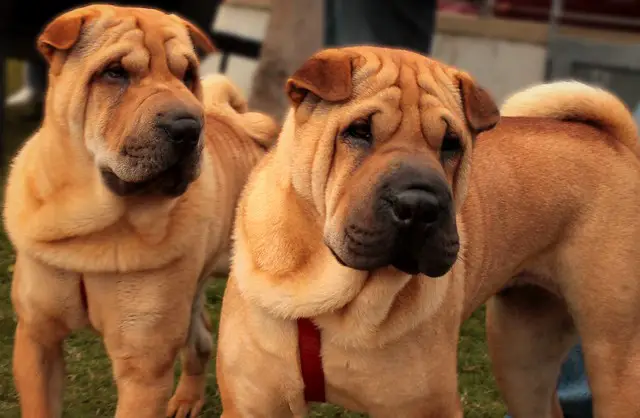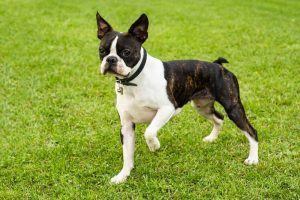Shar-Pei, Basinji and Pekingese dog breeds are more likely to howl like wolves than other breeds. This is due to their genetic closeness to wolves, according to a study conducted by researchers from Eötvös Loránd University in Budapest. The study played the sounds of a howling wolf to 68 dogs which differed in their genetic make-up. The results showed that these three particular breeds were more likely to respond with a howl.
The ability to howl is a long-distance communication signal common in the Canidae family, though it has been best studied in wolves. As a long-distance communication signal, it can be used for many purposes such as warning off predators or alerting pack members of danger. It can also be used as an expression of joy or loneliness.
The Shar-Pei breed is known for its loyalty and affection towards its own people and loves spending time with them. They tend to be aloof with strangers but will fiercely protect their families when needed. They have unique physical traits such as blue-black tongues which are shared only by the Chow Chow breed.
The Sharberian Husky is another hybrid breed that is the offspring of a Siberian Husky and Chinese Shar-Pei. This mix gives them striking wolf-like looks while still maintaining their loyal nature from both parent breeds.
It has been suggested that some of the traits we see in modern day dogs may have come from domestication processes over hundreds of years ago. Subsequent generations had less harsh or menacing features; limbs and bone structure became smaller and new traits such as barking, a unique feature among domestic animals, emerged during this process.
A recent study looked at ancestry inclusive dog genomics and challenged popular breed stereotypes by looking at different traits across various breeds including Shar Peis. The study found that there was an association between Shar Pei ancestry and being less toy directed (factor 3 pFDR = 0.002). This suggests that certain traits may be linked to certain ancestries even if they don’t necessarily fit into popular stereotypes about those breeds.
Overall, it seems that some dog breeds are more likely than others to exhibit wolf-like behaviors such as howling when hearing the sound of another wolf’s howl due to their genetic closeness with wolves and other wild canines like coyotes or jackals. While these behaviors may not always fit into popular stereotypes about certain breeds, they are still interesting characteristics worth exploring further!









